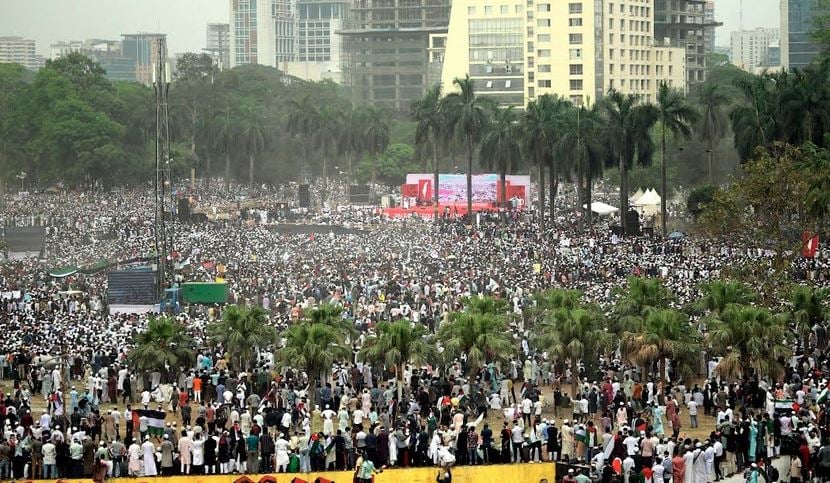
Press Release: The Amar Bangladesh Party (AB Party) has expressed concerns over the expected success of the Investment Summit 2025 amidst LDC graduation trap undertaken by the deposed regime. Without rethinking the ground reality and aftermath of transitioning to a middle-income country due in November 2026, the elaborately planned investment summit may not deliver significant benefits for Bangladesh. These apprehensions were shared by AB Party Chairman, Mojibur Rahman Monju, during a press conference held at Sunday noon at the party’s central office in Bijoy Nagar. While commending the interim government’s sincerity and goodwill, Monju appreciated the domestic and international enthusiasm surrounding the conference. He urged capitalizing on this interest constructively and advocated pausing LDC graduation efforts to protect the nation’s economic interests.
Monju stated that the party believes the vision of graduating from least developed country (LDC) status by November 2026, built on misleading and fabricated data from the previous regime, could fracture the nation’s economic foundation. He cautioned that Bangladesh’s competitive position in South Asian trade and investment might weaken, prompting both local and foreign investors to shy away from the market. To ensure transparency in the economy and trade, he called for the verification and republication of key statistics, including total population (encompassing expatriates and working-age youth), GDP, per capita income, life expectancy, annual growth rate, poverty levels, education and skill rates, domestic market purchasing power, foreign reserves, debt levels, and global credit ratings. He emphasized that reliable data is crucial for investors to make well-informed and effective decisions.
Reflecting on the past, Monju noted that Bangladesh was listed as an LDC in 1975, following the global classification of nations in 1971. He credited former President Ziaur Rahman with establishing the economic base that continues to anchor the country’s economy till today. However, he warned that prematurely pursuing middle-income status, amid domestic and foreign challenges, could trigger a collapse in exports. Losing tariff-free benefits enjoyed as an LDC for decades would necessitate reliance on high-interest loans and imported raw materials, rendering local and international trade unsustainable. These unresolved concerns, he said, loom large in investors’ minds, reducing the likelihood of the conference yielding substantial results.
On export strategies, Monju underscored that investors assess opportunities based on local and global markets. Critical factors include local market capacity, global export potential, infrastructure, competitive tax and VAT frameworks, energy security, protection of local investors’ interests, and access to bank loans and dollar reserves. He stressed the need for a practical plan to address these challenges effectively.






